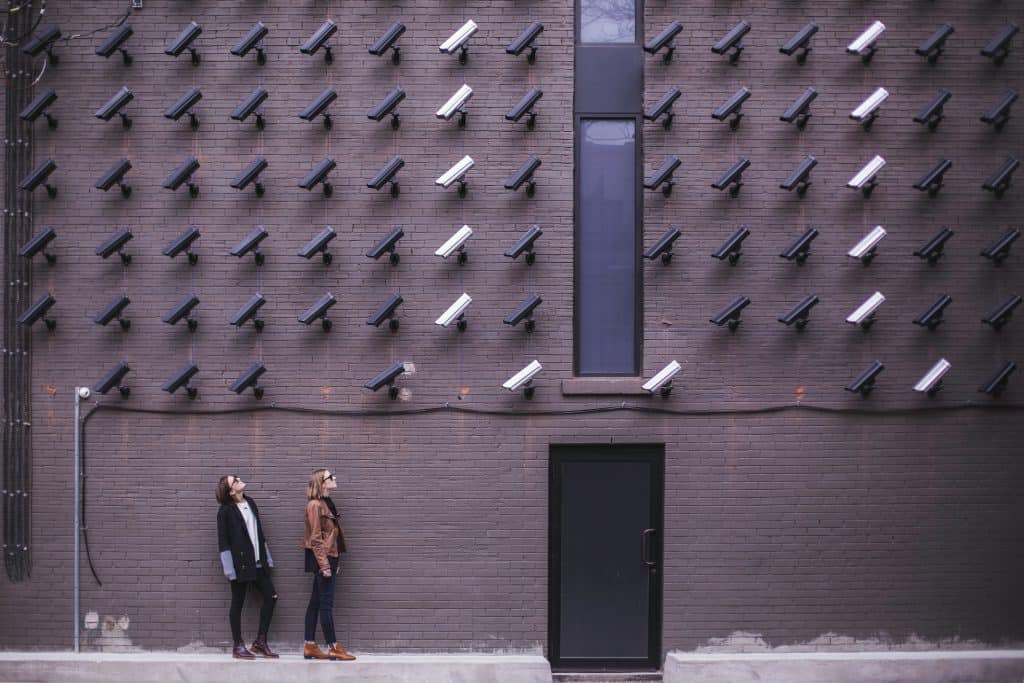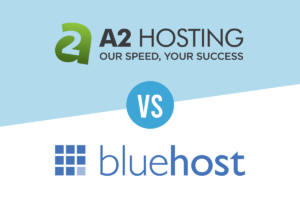As the world moves more and more data online, the amount of information worth exploiting by hackers grows along with it. Cybersecurity firms are finding the types of attacks and targets shift every year. One thing is for sure – this fight between good guys and bad guys will continue. We've pulled some of the most compelling stats for cybersecurity, covering everything from ransomware to cryptojacking.
Cybersecurity Statistics
Cybersecurity is crucial to the digital safety of citizens globally, as well as governments and companies. A lot is at stake – from privacy to identity to national security. These numbers show the worldwide increase in security breaches, attacks and identity theft.
- The average number of security breaches between 2017 and 2018 grew by 11% from 130 to 145. (Accenture)
- The global average cost of a data breach is up 6.4% over the previous year to $3.86 million. (IBM)
- Web attacks are up 56% year over year, from 2017 to 2018. (Symantec)
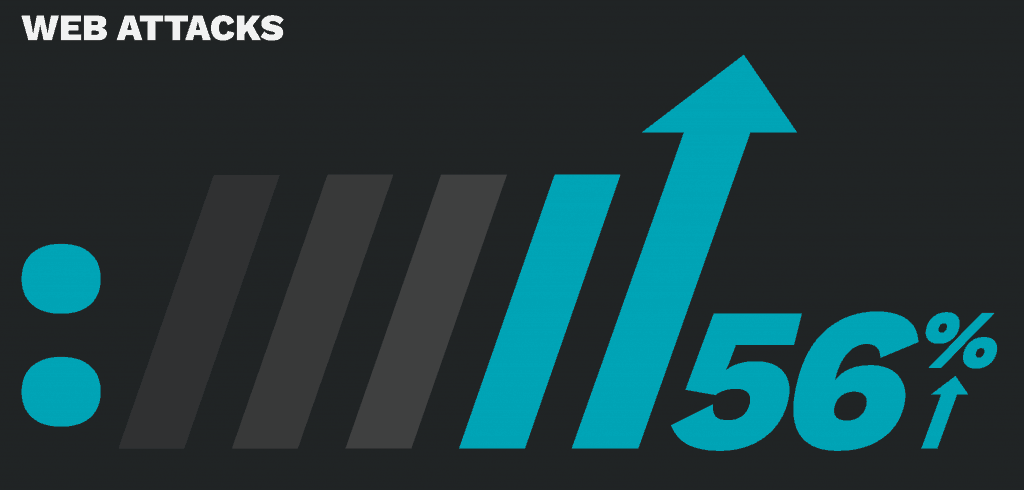
- The average cost for each lost or stolen record containing sensitive and confidential information increased by 4.8% year over year to $148. (IBM)
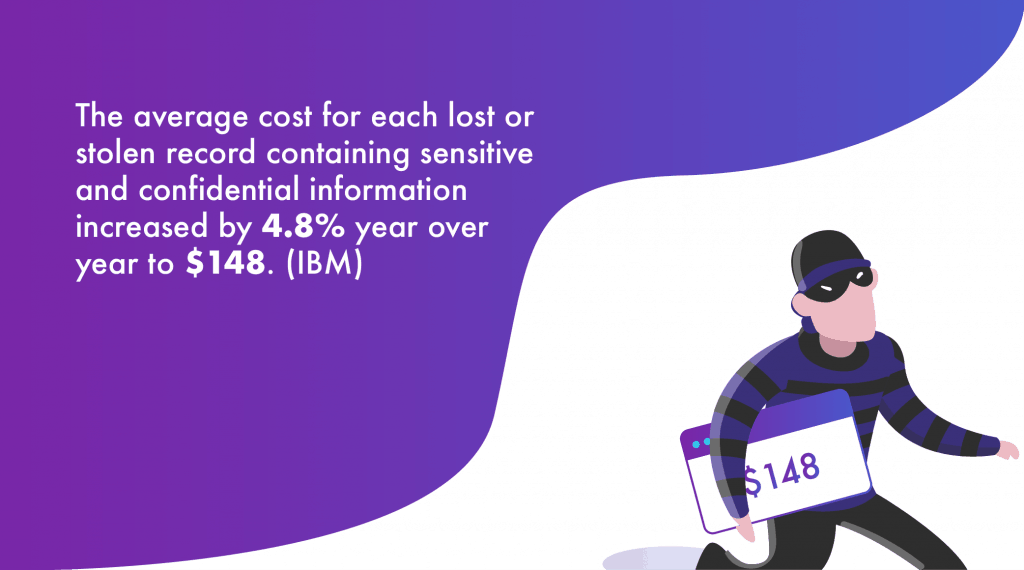
- There’s been a 67% increase of security breaches between 2014 and 2019. (Accenture)
- Enterprises accounted for 81% of all ransomware infections in 2018. (Symantec)
- The average cost of cybercrime for an organization is $13.0 million USD, this is up from $11.7 million USD in 2017. (Accenture)
- Total global cybersecurity risks is calculated at $5.2 trillion globally over the next five years. (Accenture)
- Automation, AI and machine learning add a cost savings of approximately $2.09 million USD per company, but is only being taken up by 38% of respondent companies. (Accenture)
- The average cost of a malware attack in 2018 was $2.6 million USD. (Accenture)
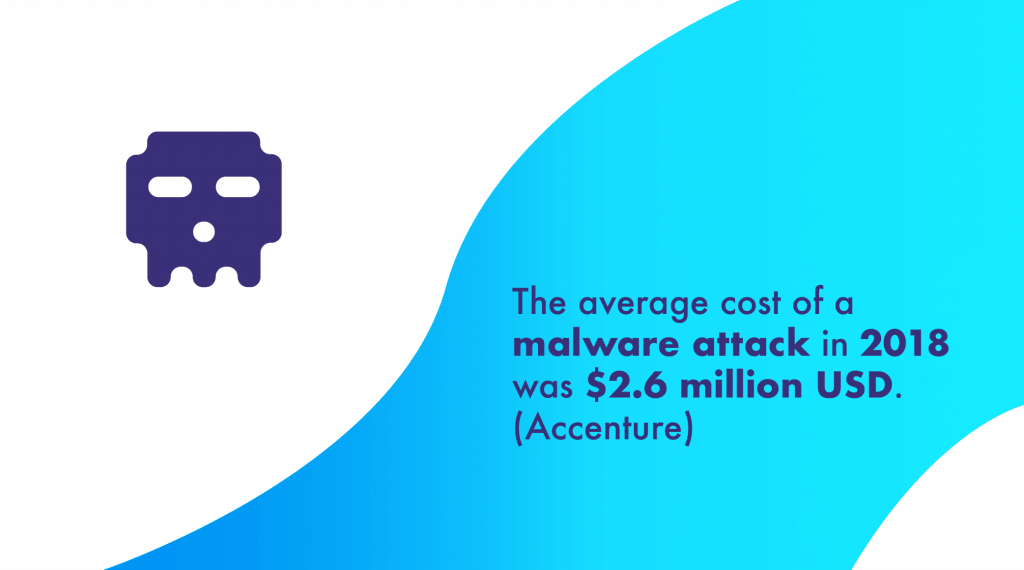
- Symantec alone blocked 3.5 million cryptojacking events in December 2018. (Symantec)
Facial Recognition & Biometrics Statistics
Facial recognition and biometric security software is rapidly growing and getting better at identifying humans. It's both a convenience and a cause of concern, as personal information now includes faces in databases. Airports across the U.S. are rolling out facial recognition at test sites, but the response is mixed.
- Facial recognition software used by the UK’s Metropolitan Police returned false positives in more than 98 per cent of alerts generated. (Independent)
- By 2021, facial recognition will be in use at the top 20 U.S. airports for 100% of international passengers, including American citizens. This is according to an executive order. (Forbes)
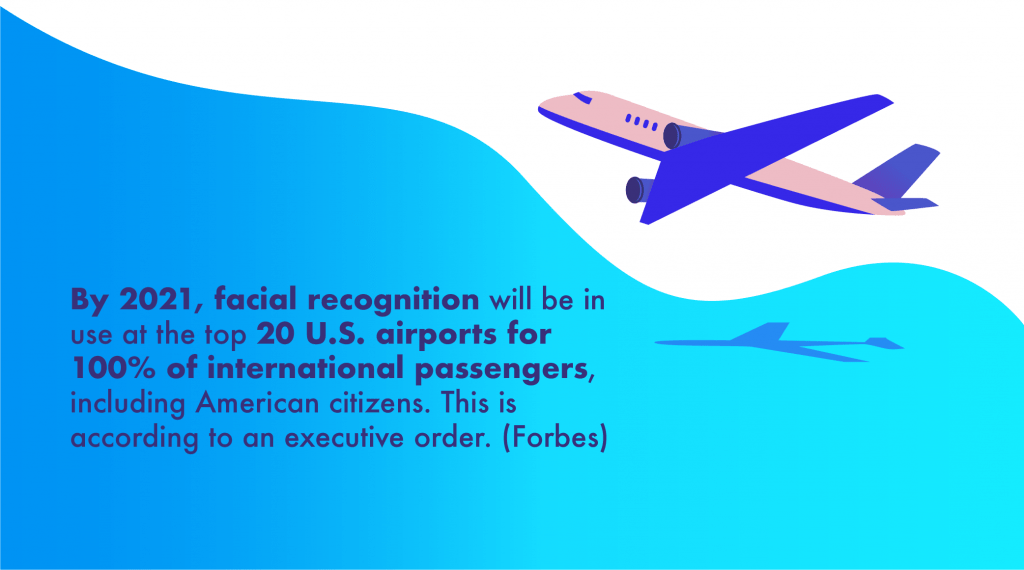
- A July 2018 test by the ACLU using Amazon Rekognition technology offered to the public by Amazon found the technology incorrectly matched 28 members of Congress and identified them as people who had committed crimes. People of color made up 40% of false matches, even though they were only 20% of the faces scanned. (ACLU)

- Brookings found 50% of people are unfavorable to facial recognition software in retail stores to prevent theft. (Brookings)
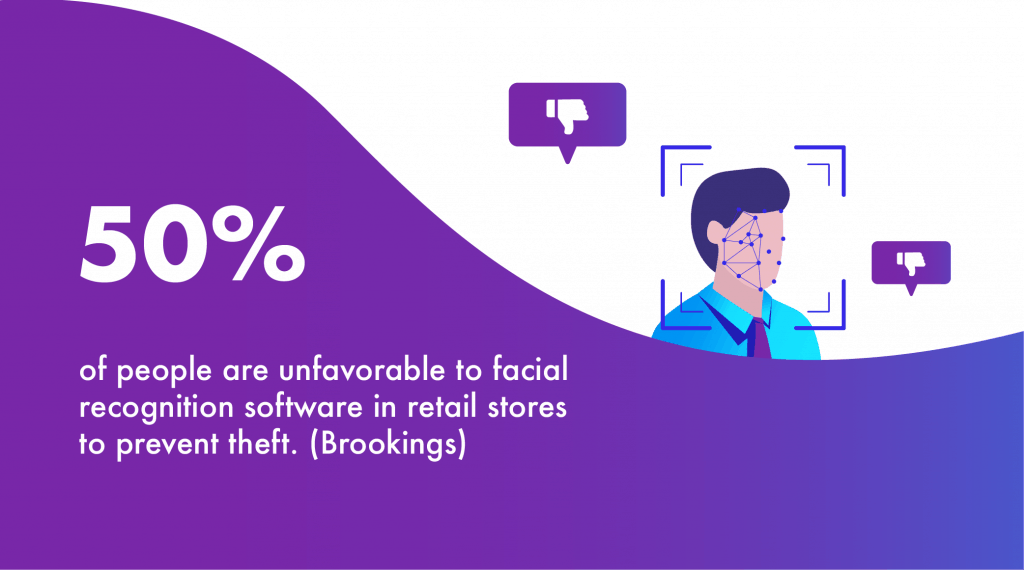
- The Brooking poll also found 50% of people believe there should be limits on law enforcement's use of facial recognition software. (Brookings)
- According to the National Institute of Standards and Technology’s (NIST) facial recognition software improved 20 times better at searching a database to find a matching photograph between 2014 and 2018. This was found after an evaluation of the bulk of the facial recognition industry software – 127 software algorithms from 39 developers. (CBP)
Hacking & Data Breaches Statistics
According to Norton, “a data breach is a security incident in which information is accessed without authorization.” It seems like you hear about a new data breach at a large corporation exposing millions of consumers' personal information. Companies and governments are constantly fighting hackers to keep their user and citizens' information safe. Here are some recent breaches in the news this year.
- Personal information of 14.8 million 500px users leaked in security breach in July 2018. This was only announced in February 2019. (The Verge)
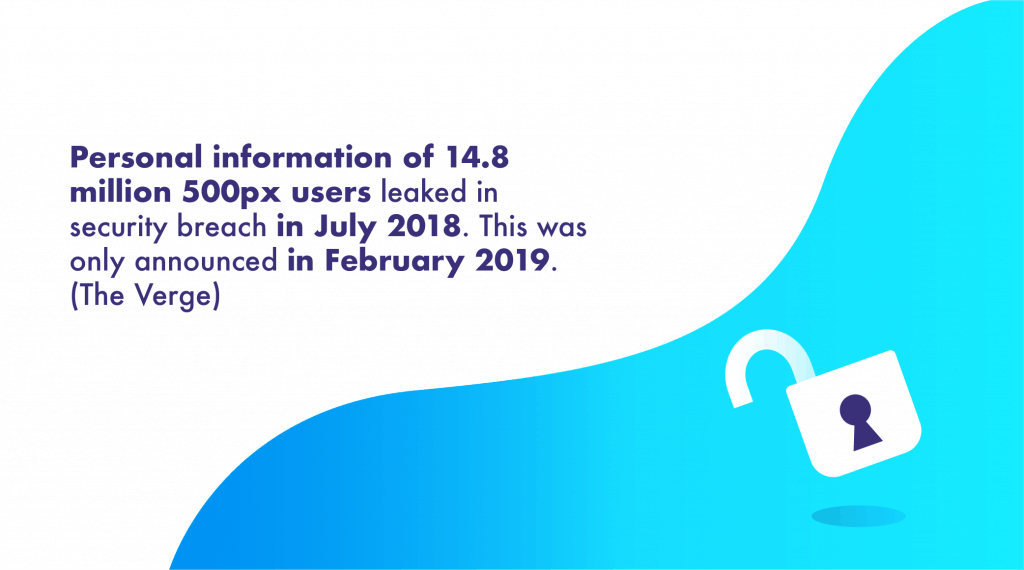
- Evernote’s Web Clipper Chrome extension had a security vulnerability, revealed on June 12, 2019, leaving data of its 4.6 million users open to hackers. The company corrected the vulnerability, but it’s unclear if user data was compromised. (Yahoo)
- On June 10, 2019 it was revealed that the database of the U.S. Customs and Border Protection agency was compromised in a cyberattack. According to the agency, less than 100,000 people were impacted as it was limited to a single border entry point. (The Guardian)
- Quest Diagnostics saw a major security breach of patient data, with nearly 12 million affected including stolen financial data, health information, and Social Security information. Hackers accessed one of Quests billing vendors between August 2018 and March 2019. News was reported on June 3, 2019. (TechCrunch)
- On May 4, 2019 it was announced that popular web graphic design tool Canva was hacked. Reports state that hackers stole data from 139 million users, including names and email addresses. (Computer World)
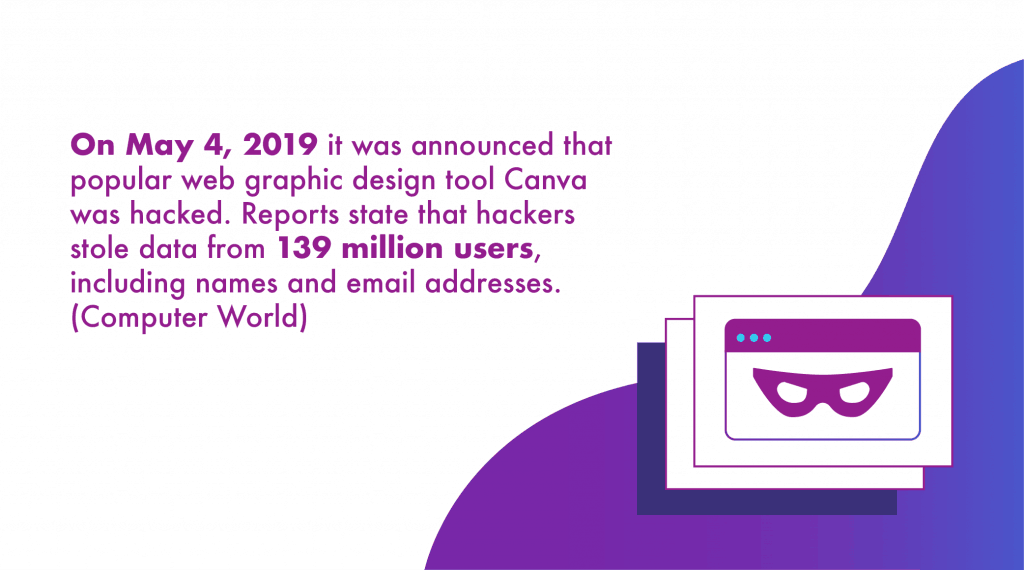
- What a whopper. A WhatsApp data breach May 13, 2019 was discovered that left some of their 1.5 billion users worldwide vulnerable. The Facebook-owned company was found to have a security flaw exposed by Israeli company, the NSO Group. The NSO Group is accused of creating technology to spy on journalists and human-rights activists, and is currently being sued by a London lawyer, who was a target of the hacking. (New York Times)
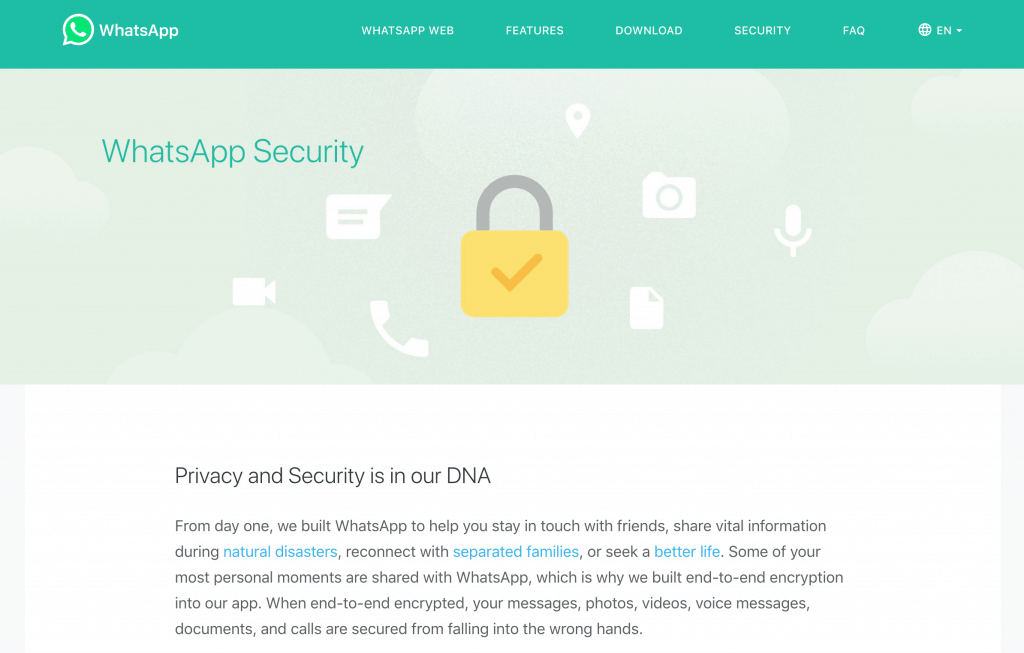
Featured security page on the WhatsApp website. - Time to trust Facebook even less? In March 2019, Facebook admitted to not properly storing passwords of as many as 600 million users. More than 20,000 of the company’s employees had access to user logins. (Facebook)
- Connected to the March 2019 announcement, it was announced that millions of Instagram accounts were left vulnerable as well. Internal reports stated that there were no compromises of this data (Facebook)
Last Updated on December 5, 2023 by Joe

